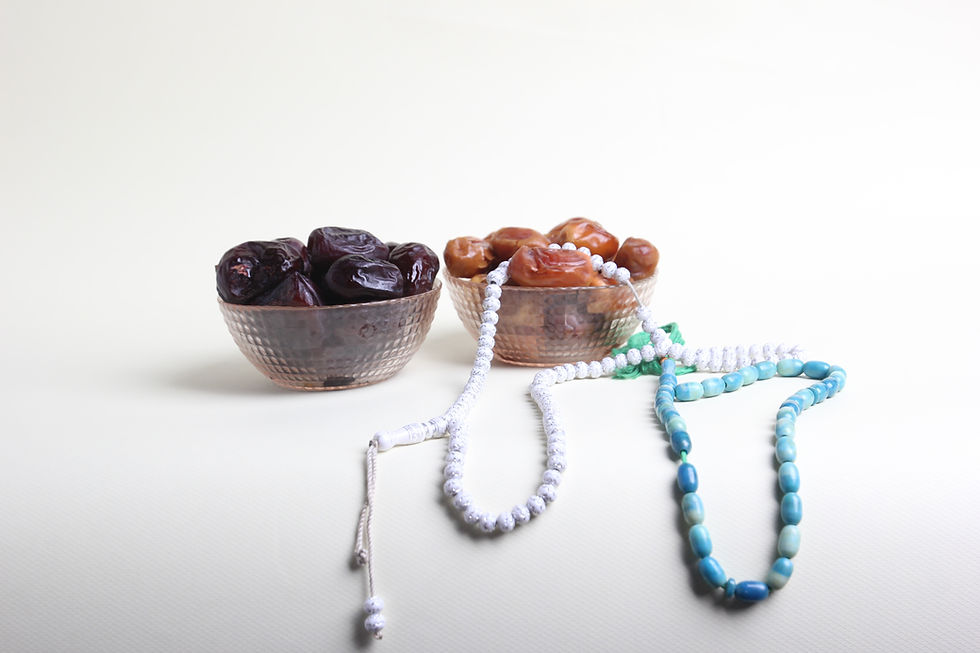Nutrition and Sperm Health: How Your Diet Impacts Fertility
- Dahlia Abou El Hassan

- May 22, 2023
- 3 min read
Updated: Jun 2, 2023
Posted on May 22, 2023. Author: Dahlia Abou El Hassan, MScFN, RD

When it comes to fertility and conception, many couples focus solely on the health of the female partner. However, it's important to remember that male fertility also plays a crucial role in the process. The quality and quantity of sperm can significantly impact a couple's chances of conception. While various factors affect sperm health, including genetics and lifestyle choices, nutrition plays a vital role. In this blog post, we will explore the connection between nutrition and sperm health, discussing the essential nutrients that support optimal fertility and offering dietary tips for men looking to boost their reproductive health.
The Role of Nutrition in Sperm Health:
Antioxidants: Antioxidants are crucial for protecting sperm cells from oxidative damage caused by free radicals. Vitamins C and E, selenium, and zinc are powerful antioxidants that help maintain the integrity and functionality of sperm.
Omega-3 Fatty Acids: Omega-3 fatty acids, particularly docosahexaenoic acid (DHA), are essential for sperm membrane structure and function. Including sources such as fatty fish, flaxseeds, and walnuts in the diet can contribute to healthier sperm.
B Vitamins: B vitamins, including folate, B12, and B6, are involved in DNA synthesis and repair. Adequate levels of these vitamins are necessary for the production of healthy sperm.
Zinc: Zinc is a vital mineral for male reproductive health. It plays a role in sperm development, testosterone production, and sperm motility. Oysters, beef, pumpkin seeds, and spinach are excellent dietary sources of zinc.

Foods to Boost Sperm Health:
Colorful Fruits and Vegetables: Vibrant fruits and vegetables are rich in antioxidants and phytochemicals, which help reduce oxidative stress and promote sperm health. Include a variety of berries, citrus fruits, leafy greens, and cruciferous vegetables like broccoli and cauliflower.
Lean Proteins: Opt for lean sources of protein like poultry, fish, and legumes. These provide essential amino acids necessary for sperm production.
Whole Grains: Replace refined grains with whole grains like quinoa, brown rice, and whole wheat bread. They are rich in B vitamins and fiber, supporting overall reproductive health.
Healthy Fats: Incorporate sources of healthy fats such as avocados, olive oil, and nuts into your diet. These provide omega-3 fatty acids, promoting sperm quality.
Water and Hydration: Staying properly hydrated is crucial for maintaining optimal semen volume. Aim for at least eight glasses of water per day.
Lifestyle Factors and Sperm Health:
Maintain a Healthy Weight: Obesity has been linked to decreased sperm quality and fertility issues. Strive for a healthy weight through a balanced diet and regular exercise.
Limit Alcohol and Caffeine: Excessive alcohol consumption and high caffeine intake have been associated with reduced sperm production and motility. Moderation is key.
Quit Smoking: Smoking negatively impacts sperm count, motility, and morphology. Seek support to quit smoking and improve overall fertility.
Manage Stress: Chronic stress can interfere with reproductive hormones and sperm production. Incorporate stress management techniques like exercise, meditation, and hobbies into your routine.
In summary, a balanced diet rich in antioxidants, omega-3 fatty acids, B vitamins, and zinc, coupled with a healthy lifestyle, can help boost fertility potential. If you and your partner are trying to conceive, consider making dietary and lifestyle changes together to support both male and female reproductive health. Remember, consulting a healthcare professional is essential for personalized advice and guidance on your fertility journey.
NOTE: The content in this blog is solely for informational purposes and not a substitute for informed medical advice. For more information, and recipes or to book a nutrition session visit www.dahlianutrition.ca or follow me on Instagram @Dahlia_fertility_nutrition .









Hi its jane here. From thefertilitymagazine.com .we would love to do a write up on your services in our magazine. Packages start from 50 dollers per month and also we work with all the big fertility clinics and we would send you a list of patient referrals looking for your services then we would book a zoom meeting for 10 mins. To show you it all you can call me on 6474995225 or text me a time I can call you regards jane